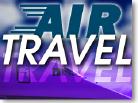|
Closing low-fare loopholes
|
 |
July 30, 1998: 11:50 a.m. ET
Airlines crack down on back-to-back ticketing with new technology
|
NEW YORK- (biztravel.com) - As business airfare prices escalate, travel agents and airline travelers have been devising clever techniques to find cheaper prices. One technique, called "back-to-back ticketing," involves buying two round-trip tickets and throwing away half of each ticket -- instead of purchasing more expensive one-way tickets to a destination.
Unfortunately, airlines consider this practice illegal and have been taking steps against both individual travelers and travel agents to prevent it.
Marge Feiner, a travel agent with Main Street Travel in Charlottesville, Virginia, noted that a New York to San Francisco round-trip ticket on United Airlines costs $359 if booked 14 days in advance with a Saturday night stayover. However, flying from New York to San Francisco on Monday and returning on Tuesday will cost $888 each way.
With back-to-back ticketing, travel agents buy two round-trip tickets (one originating in each city) at $359 each and simply discard the second half. The total cost is $718 -- still less than the price of a one-way ticket. Travelers can save 50 to 60 percent on their fare and circumvent airline's restrictions for a Saturday night stay, aimed to exclude corporate business travelers.
Back-to-back ticketing was becoming an increasingly popular tactic until airlines discouraged its use by penalizing the travelers and travel agents who employed it.
One airline, in fact, recently charged a Texas travel agency $70,000 for numerous examples of back-to-back ticketing and fined a New Jersey travel agency $11,000 -- the discrepancy between what the tickets should have cost if back-to-back ticketing had not been employed.
Airlines catch back-to-back ticketers by employing sophisticated software that sorts passengers by name, shows where passengers board, and reveals whether they have taken their return trip. If the passenger is not using both ends of a round-trip ticket or uses two separate tickets on overlapping dates, the airline will invalidate the ticket.
Travelers also will be prohibited from using their return ticket, either leaving them stranded if no other seats are available, or forcing them to pay the higher fare to complete their trip. Their frequent flyer miles will also be canceled.
US Airways intensified its efforts to discourage back-to-back ticketing in late 1997, launching an awareness campaign among its own staff and notifying travel agents that if discovered they will be fined, said David Castelveter, a company spokesman.
"We lose millions of dollars in revenue from back-to-back ticketing," he said.
Mark Abels, a spokesman for TWA, stated unequivocally that TWA is trying to prevent travelers from employing back-to-back ticketing. Back-to-back ticketing, he said, "is a violation of tariffs. If we discover it, we disallow it."
Intent on saving costs, business travelers are still finding ways to circumvent the rules, noted Hal Salfen, spokesperson for the International Airline Passengers Association. Some buy one round-trip ticket directly from the airline and another from a travel agent to avoid detection or book flights on airlines that are not cracking down.
Just say 'no'
Chris Privett, a spokesperson for the American Society of Travel Agents (ASTA), noted that travelers have used back-to-back ticketing as long as airlines have offered discounts with Saturday night stays. ASTA acknowledges that this practice defies airline policies, but Privett maintains that travel agents are caught between the demands of consumers who want cheaper fares and airlines' restrictive policies.
"We have gone on notice to corporate clients, informing them that we will not do back-to-back tickets because of the financial risk to the company," said Mike Pingrey, general manager at Act Travel, a Washington, D.C.-based travel agency that specializes in corporate travel. Airlines threaten to charge the agency the price of the ticket and add on a hefty surcharge.
"But how does a travel agent say, 'No' to a million dollar business client?" asked Privett. If one travel agent declines employing back-to-back ticketing, another one will be happy to do it.
While corporate travelers pass costs on to their corporations, small business people have been hit hard with the rising costs of business travel.
Many are opting to stay over Saturday nights and spend $150 on a hotel room to avoid the $400 or more for airline ticket costs, Salfen said.
Small business people are also opting for e-mail and teleconferencing to reduce their airline travel. In the future, it appears likely that sophisticated software will either end back-to-back ticketing or severely curtail it, unless enterprising business travelers find a way to circumvent the airline's policies without suffering financial penalties. 
|
|
|
|
|
 |

|

